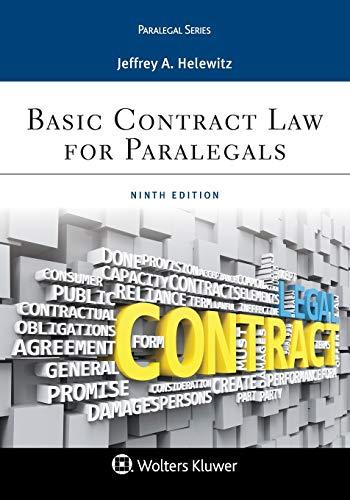In this suit arising from the sale of land, we examine the appropriate measure of damages for
Question:
In this suit arising from the sale of land, we examine the appropriate measure of damages for a sale obtained through fraudulent inducement. A jury concluded that the seller of the land had failed to disclose material information to the buyer about the financial state of a commercial tenant who leased the land. But the jury further concluded that the buyers suffered nothing in damages proximately caused by the fraud, measured at the time of the sale, and it awarded no damages in connection with the costs incurred with the termination of the tenant’s lease, nor the legal fees the buyers incurred due to the tenant’s bankruptcy, nor the interest expense the buyers incurred on loans they obtained to facilitate the purchase. The trial court entered a take-nothing judgment in favor of the seller.
A majority of a panel of our court reversed the trial court, concluding that the buyers were nonetheless entitled to damages based on the loss that the buyers took when they sold the land three years later. The majority also concluded, with one justice dissenting, that the buyers did not disclaim reliance on the seller’s promise of full disclosure in a letter of intent that the seller had signed before the sale. The seller moved for rehearing and rehearing en banc. The panel majority granted the motion for rehearing and revised its opinion, mooting the en banc request, but its disposition remained the same. The seller moved again for en banc consideration. Concluding that the case warranted en banc review, a majority of our court has voted to reconsider this case. See Tex. R. App. P. 49.7. We withdraw the panel’s August 16, 2012 opinion on rehearing and judgment, and substitute this opinion and judgment in its place.
We hold that the trial court properly entered a take-nothing judgment, because the jury found that no damages were proximately caused by the fraud, measured at the time of the sale, and it found no incidental or consequential damages relating to the sale. We further hold that the trial court properly denied the seller’s request for attorney’s fees as the prevailing party, because the parties’ contract did not provide for a recovery for attorney’s fees incurred in defense against claims of fraud. We therefore affirm.
Background Peter, Shari, and Eric Fazio sued Cypress/GR Houston I, L.P., Cypress/GR Houston, Inc., and Cypress Equities, Inc. (collectively, Cypress)
for fraudulent inducement, relating to the Fazios’ purchase, in October 2003, of commercial land located on the frontage road of Interstate 10 in Houston.
At that time, Garden Ridge Pottery leased the site for one of its retail stores.
After identifying the land as an investment prospect, the Fazios notified Cypress of their interest in purchasing it. In early September 2003, the parties executed a letter of intent, signed by Peter Fazio and a representative of Cypress Equities, in which Cypress agreed to allow the Fazios to investigate “all aspects of the Property” and further agreed to provide the Fazios with “all information in [Cypress’s] possession.” The Fazios and their brokers subsequently conducted due diligence and inspected the property. As part of this process, they requested “every scrap of paper” that Cypress had regarding the property. The Fazios reviewed multiple appraisals of the property; researched the property’s primary tenant, Garden Ridge;
investigated the lease terms; reviewed Garden Ridge’s audited financial statements; and contacted Garden Ridge’s CFO for an assessment of Garden Ridge’s financial condition. The Fazios’ investigations revealed that Garden Ridge was restructuring and struggling financially, but that Garden Ridge had recently secured a line of credit for its operations to continue through the 2003 Christmas season. During their discussions with Garden Ridge’s CFO, the CFO was optimistic that Garden Ridge could work through its financial difficulties. The Fazios’ own lenders were not as certain, and told the Fazios that Garden Ridge was not a viable long-term tenant. Garden Ridge’s audited financial statements, which the Fazios reviewed, showed that Garden Ridge had defaulted on its debt covenants and was in the process of corporate restructuring.......
Questions
1. How does the court measure direct damages?
2. What does the court say about rescission damages?
3. Why can’t the Fazios collect exemplary damages?
Step by Step Answer:






